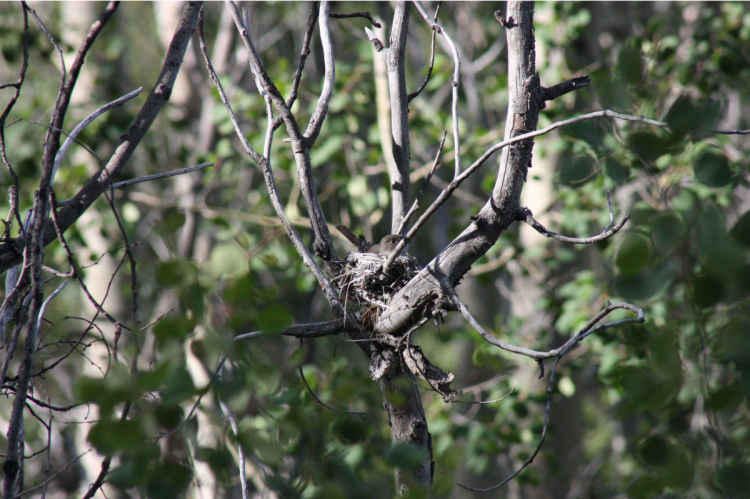Breadcrumbs
Quantifying impacts of climate change on aerial insectivorous birds in the northwest

The boreal forest provides breeding habitat for over 300 species of birds and northern regions could provide refugia from climate change or habitat loss. Northwestern North America has warmed three times the global average from climate change, making study of northern ecosystems imperative to conservation and management of vulnerable species. Migratory birds are impacted disproportionately by climate change because of additional stressors from habitat loss during a long migration, as well as changes to timing of spring events in breeding areas. Results of broad scale modeling using over 15,000 abundance measures in northwestern North America revealed some small areas of potential refugia in various future climate scenarios for two species of birds. Results from studies of local community dynamics in Yukon suggested that several species of bird depend on large insects for food and that synchrony between timing of insect abundance and breeding of birds has changed. These results are concerning for long term conservation of migratory bird populations in the Yukon.
This piece, by YukonU's Biology Instructor / Coordinator, Dr. Tara Stehelin, is part of a double header presentation for the SCOPe Lunch-and-Learn Webinar Series.
This talk offers SCOPe members and the public an opportunity to hear from those who are leading the charge to generate knowledge that addresses crucial and pressing questions for Yukon and beyond. YukonU's Chair of School of Science, Dr. Joel Cubley, will precede this talk with his own presentation: Using geochemistry to better understand Mesozoic mountain-building in Yukon.